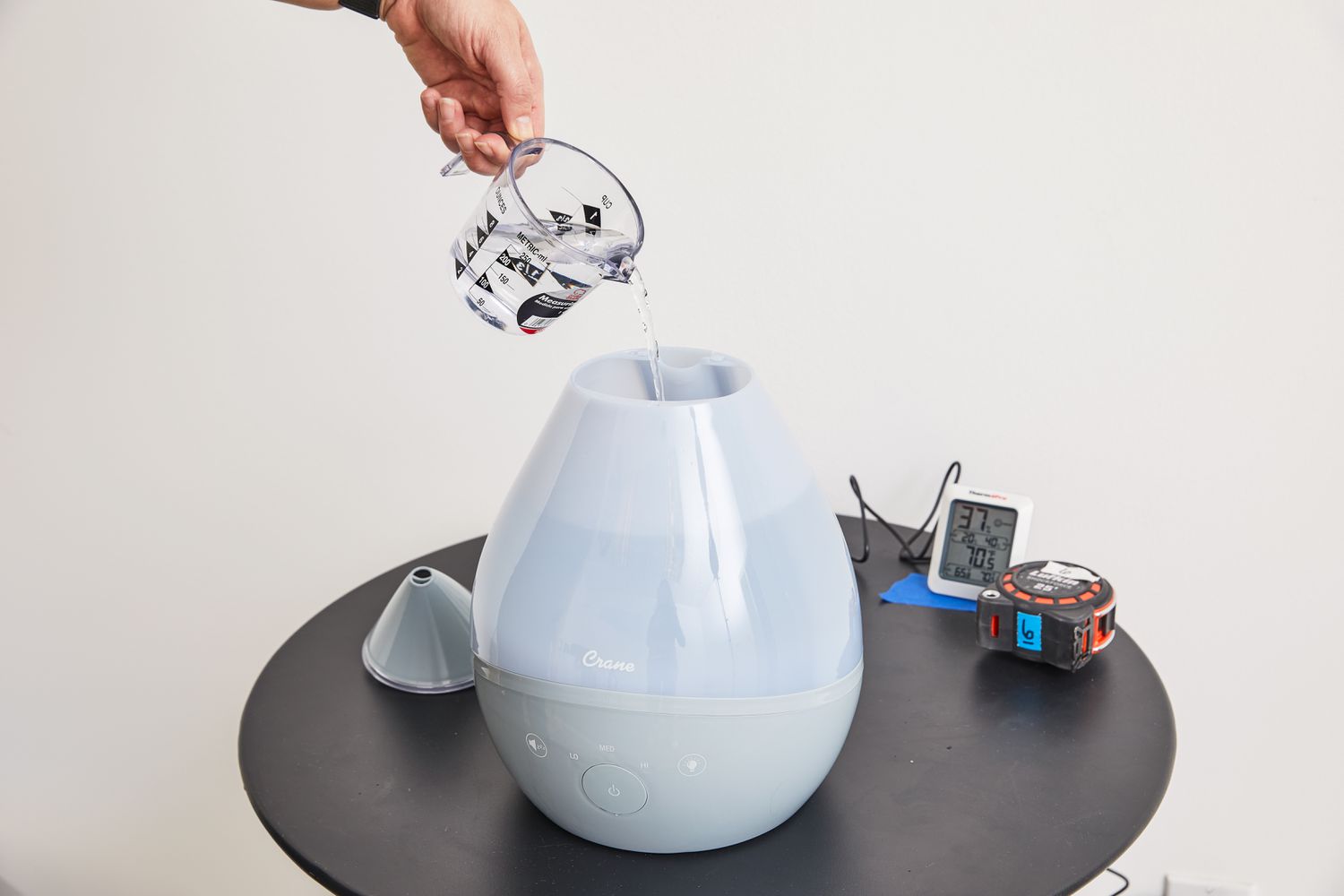

Articles
What To Put In A Humidifier
Modified: April 23, 2024
Discover the benefits of using a humidifier in your home. Read our informative articles on what to put in a humidifier and create a healthier indoor environment.
(Many of the links in this article redirect to a specific reviewed product. Your purchase of these products through affiliate links helps to generate commission for Storables.com, at no extra cost. Learn more)
Introduction
A humidifier is a device that adds moisture to the air in order to increase humidity levels. It can provide numerous benefits for your health and the overall comfort of your living space. But when it comes to deciding what to put in a humidifier, it’s important to approach the task with caution and consideration.
Humidifiers are commonly used during dry seasons or in regions with low humidity levels. They can alleviate various respiratory issues, such as dry skin, coughing, sinus congestion, and allergies. Additionally, they can help to maintain optimal moisture levels in your home, which is essential for preventing damage to wooden furniture, reducing static electricity, and creating a more comfortable environment.
There are different types of humidifiers available on the market, including evaporative humidifiers, ultrasonic humidifiers, and steam vaporizers. Each type has its own set of advantages and disadvantages, and the choice often depends on personal preference and the specific needs of the user.
Before putting anything in your humidifier, it’s crucial to consider a few factors. Firstly, you need to consider the type of humidifier you have and whether it is compatible with certain substances. Some humidifiers are not designed to handle essential oils or medications, as they may clog the machine or cause damage.
Next, it’s important to be mindful of the potential risks and side effects of adding substances to your humidifier. While some ingredients can enhance the benefits of humidification, others may have negative effects or be hazardous if dispersed into the air.
In this article, we will discuss some common substances that people consider adding to their humidifiers, including water, essential oils, medications, and humidifier cleaning solutions. It’s important to note that the information provided here is for general knowledge purposes, and you should always consult the manufacturer’s instructions and guidelines for your specific humidifier model.
Key Takeaways:
- Choose substances for your humidifier wisely. Consider compatibility, health risks, and maintenance to ensure optimal performance and safety.
- Prioritize proper maintenance and responsible usage of your humidifier. Use suitable cleaning solutions and follow manufacturer’s guidelines for a healthier indoor environment.
Importance of a Humidifier
A humidifier plays a crucial role in maintaining optimal humidity levels in your home or office. It is particularly beneficial during dry seasons or in areas with low humidity, as it can provide a range of health and comfort benefits.
One of the main benefits of using a humidifier is its impact on respiratory health. Dry air can cause several respiratory issues such as dry throat, coughing, nasal congestion, and even nosebleeds. By adding moisture to the air, a humidifier helps to alleviate these symptoms and promote better breathing. This is especially beneficial for individuals with asthma, allergies, or other respiratory conditions.
Moreover, a humidifier can also prevent dry skin, which is a common problem during winter months. Low humidity levels can lead to dry and itchy skin, as well as exacerbate existing skin conditions such as eczema. By adding moisture to the air, a humidifier helps to keep the skin hydrated and supple.
In addition to its impact on health, a humidifier also helps to protect your home and belongings. Dry air can cause wooden furniture to shrink and crack, while also causing paint to peel. By maintaining proper humidity levels, a humidifier prevents these damages and preserves the beauty and longevity of your furnishings.
Another benefit of using a humidifier is its effect on static electricity. Dry air can increase static electricity, leading to annoying shocks from everyday objects. By balancing the moisture in the air, a humidifier reduces static electricity and provides a more comfortable environment.
Furthermore, proper humidity levels have been shown to alleviate snoring and improve sleep quality. Dry air can cause irritation and swelling of the nasal passages, leading to snoring. By adding moisture to the air, a humidifier helps to soothe the airways and promote better sleep for both snorers and their partners.
Overall, a humidifier is a valuable addition to any living or working space, especially in dry or low-humidity environments. Its benefits range from improving respiratory health and preventing dry skin to protecting your home and ensuring a comfortable environment. However, it’s important to use a humidifier safely and responsibly, and to choose the right type of humidifier for your specific needs.
Types of Humidifiers
There are several types of humidifiers available on the market, each employing different mechanisms to increase moisture levels in the air. Understanding the differences between these types can help you choose the one that best suits your needs.
1. Evaporative Humidifiers: Evaporative humidifiers work by blowing air over a moistened wick or filter, which allows the water to evaporate into the air. This process helps to increase humidity levels while also filtering out impurities. Evaporative humidifiers are often more affordable and consume less energy compared to other types, making them a popular choice for many households. However, they may require regular maintenance to clean or replace the filters.
2. Ultrasonic Humidifiers: Ultrasonic humidifiers use ultrasonic vibrations to create a fine mist that is then released into the air. These humidifiers are known for their quiet operation and energy efficiency. They also offer the flexibility to adjust humidity levels to personal preferences. However, some models may produce white dust as a byproduct if the water used contains minerals. Using demineralized or distilled water can prevent this issue.
3. Steam Vaporizers: Steam vaporizers or steam humidifiers boil water and release steam into the air. This type of humidifier is effective in raising humidity levels quickly and can provide relief from congestion and respiratory symptoms. However, they can be more expensive to operate and require regular cleaning to prevent the buildup of mineral deposits.
4. Whole House Humidifiers: Whole house humidifiers are installed directly into the heating and cooling system of a home, ensuring that moisture is distributed evenly throughout all rooms. This type of humidifier is typically more expensive and requires professional installation. However, it offers convenience and coverage for larger spaces.
5. Portable Travel Humidifiers: As the name suggests, portable travel humidifiers are compact and designed for travel purposes. They are easy to pack and can be used in hotel rooms, offices, or any other location where you need to increase humidity levels temporarily.
When choosing a humidifier, consider factors such as the size of the area you want to humidify, the type of maintenance required, and the specific features and functionality that align with your preferences. Additionally, always refer to the manufacturer’s instructions for proper usage and care of your chosen humidifier.
Factors to Consider Before Adding Anything to a Humidifier
While a humidifier can provide numerous benefits for your health and comfort, it’s important to exercise caution when considering what to put in it. Not all substances are suitable for a humidifier, and using the wrong ingredients can damage the machine or pose health risks. Before adding anything to your humidifier, consider the following factors:
1. Humidifier Compatibility: First and foremost, check the manufacturer’s guidelines to determine what substances are safe to use with your specific humidifier model. Certain humidifiers are not designed to accommodate essential oils, medications, or other additives. Using incompatible substances may cause clogging, damage to the machine, or void your warranty.
2. Health and Safety: Consider the potential health and safety risks associated with the substance you intend to add. Some essential oils, for example, can be harmful if dispersed into the air in excessive amounts or if used by individuals with certain conditions or sensitivities. Certain medications are not intended to be inhaled and can cause respiratory issues when placed in a humidifier.
3. Allergies and Sensitivities: Take into account any allergies or sensitivities you or your family members may have. While essential oils can provide aromatic benefits, they may trigger allergic reactions or respiratory irritation in some individuals. If you or a family member are prone to allergies or have respiratory conditions, it’s best to consult with a healthcare professional before adding anything to your humidifier.
4. Cleaning and Maintenance: Consider the impact of the substance on the cleanliness and maintenance of your humidifier. Some additives, such as certain essential oils or medications, may leave residue or buildup in the machine, requiring more frequent cleaning or special cleaning solutions. Neglecting proper cleaning and maintenance can lead to the growth of mold or bacteria in the humidifier, which can be harmful to your health.
5. Personal Preference: Ultimately, the decision of what to put in your humidifier depends on personal preference. Some people enjoy the aroma of essential oils and find it beneficial for relaxation or mood enhancement. Others may prefer to stick to using just water in their humidifier to avoid any potential risks or complications. Assess your own preferences and needs before making a decision.
Remember to always read and follow the instructions provided by the manufacturer of your humidifier. They will provide specific guidance on what substances are safe to use and how to properly maintain your humidifier for optimal performance and longevity.
Water
Water is the most essential and common substance used in humidifiers. It serves as the primary medium for increasing the humidity levels in the air. However, even though it may seem straightforward, there are important considerations to keep in mind when using water in your humidifier.
1. Type of Water: The quality of the water you use in your humidifier can impact its performance and longevity. It is generally recommended to use distilled or demineralized water to minimize the buildup of mineral deposits in the humidifier. Tap water often contains minerals that can accumulate over time and cause clogging or reduce the efficiency of the machine. Using filtered water can also help eliminate impurities that can be dispersed into the air.
2. Regular Refilling: Proper maintenance includes regularly refilling the water tank of your humidifier. It is important to follow the manufacturer’s instructions and refill the tank daily, especially during periods of high usage. Emptying and refilling the tank prevents the water from becoming stagnant and reduces the risk of bacteria or mold growth.
3. Cleanliness: Regular cleaning of your humidifier is crucial to prevent the buildup of scale, mold, or bacteria. Water can harbor microorganisms, which can be dispersed into the air and potentially cause respiratory issues if the humidifier is not cleaned properly. Refer to the manufacturer’s instructions for guidance on how to clean your specific humidifier model. Using a mixture of water and vinegar or specialized cleaning solutions can help remove any mineral deposits or buildup.
4. Avoiding Overfilling: It’s important not to overfill your humidifier’s water tank. Follow the recommended fill line indicated on the machine to prevent water from overflowing or causing damage. Overfilling can lead to leakage, electrical issues, or ineffective operation of the humidifier.
5. Temperature of Water: Generally, room temperature water is recommended for humidifiers, as using hot water can potentially damage the machine or lead to increased evaporation rates. However, it is always best to consult the manufacturer’s instructions for the appropriate water temperature for your specific humidifier model.
Water is the foundation of any humidifier, transforming dry air into a more comfortable and humid environment. By using the right type of water, regularly refilling and cleaning the tank, and following proper maintenance protocols, you can maximize the effectiveness and lifespan of your humidifier while ensuring a healthier indoor atmosphere.
When using a humidifier, it’s important to use distilled or demineralized water to prevent mineral buildup and the release of white dust. This will help keep your humidifier running efficiently and maintain air quality.
Read more: Where To Put A Humidifier
Essential Oils
Essential oils have gained popularity in recent years for their aromatic properties and potential health benefits. Many people consider adding essential oils to their humidifiers to enhance the air quality and create a pleasant and inviting atmosphere in their homes. However, there are important factors to consider before using essential oils in a humidifier.
1. Compatibility: Not all humidifiers are designed to accommodate essential oils. Some humidifier models have specific instructions against using essential oils, as they may contain certain components that can cause damage to the machine or clog the filter. It is important to check your humidifier’s user manual or consult the manufacturer to determine if it is compatible with essential oils.
2. Dilution: Essential oils are highly concentrated plant extracts and should never be used undiluted in a humidifier. It is essential to dilute essential oils with water or a carrier oil before adding them to the humidifier. Failure to dilute the oils can result in respiratory irritation or damage to the humidifier. Follow the recommended dilution ratios specified by the essential oil manufacturer or refer to trusted sources for dilution guidelines.
3. Safety Considerations: Some essential oils may have potential risks, especially when used inappropriately or excessively. Certain oils can be toxic to pets, children, or individuals with specific health conditions. It is crucial to research each essential oil and understand its potential side effects, contraindications, and precautions. Exercise caution and seek guidance from a certified aromatherapist or healthcare professional if you have any concerns or questions.
4. Personal Sensitivities: Essential oils have strong fragrances, and some individuals may be sensitive or allergic to certain oils. It is important to perform a patch test to check for any adverse reactions before using essential oils in your humidifier. Additionally, if you or a family member experience any discomfort, respiratory issues, or allergic reactions when using essential oils, discontinue use immediately.
5. Cleaning and Maintenance: Adding essential oils to your humidifier requires thorough and regular cleaning to prevent the buildup of residue or oil deposits. Essential oils can leave behind a film in the tank, which may be difficult to remove and can lead to the growth of mold or bacteria. Refer to the manufacturer’s instructions and follow proper cleaning protocols to keep your humidifier clean and functioning optimally.
When used safely and responsibly, essential oils can enhance the atmosphere and provide aromatherapy benefits when added to a compatible humidifier. It is crucial to prioritize the health and safety of yourself and others by understanding the limitations, guidelines, and potential risks associated with essential oil use in humidifiers.
Medications
Sometimes, people may consider adding medications to their humidifiers in an attempt to alleviate respiratory symptoms or to aid in treating certain conditions. While this may seem like a convenient option, it’s important to approach the use of medications in humidifiers with caution and consult with a healthcare professional.
1. Consultation with a Healthcare Professional: It is crucial to consult with a healthcare professional, such as a doctor or pharmacist, before considering adding medications to your humidifier. They can provide guidance and ensure that the medication is suitable for use in this manner, taking into account your specific health condition, age, and any potential interactions with other medications.
2. Proper Administration: Medications are typically designed for specific routes of administration, such as oral, nasal, or inhalation. It’s important to use medications in the manner intended by the manufacturer or as prescribed by a healthcare professional. Adding medications to a humidifier may alter their intended method of administration, potentially affecting their efficacy or safety.
3. Potential Risks: Some medications may contain components that are not meant to be inhaled or dispersed into the air. Inhaling certain medications without proper instructions or supervision can lead to adverse effects, such as throat irritation, bronchospasms, or systemic side effects. Always follow medical advice and guidelines for the specific use of medications.
4. Humidifier Compatibility: Consider whether your humidifier is compatible with the specific medication you intend to use. Not all humidifiers are designed to handle medications, and using incompatible substances can cause clogging, damage to the machine, or pose safety risks. Refer to the manufacturer’s instructions or consult a healthcare professional to determine if adding medications to your humidifier is appropriate.
5. Hygiene and Cleaning: If, under professional guidance, it is deemed suitable to use medications in a humidifier, it is essential to maintain strict hygiene and cleanliness. Medications can leave behind residue or create a conducive environment for bacterial growth. Regularly clean and disinfect your humidifier according to the manufacturer’s instructions to prevent the growth of mold or bacteria.
6. Alternative Methods of Medication Administration: In most cases, there are alternative and more effective methods of administering medication for respiratory conditions. Inhalers, nebulizers, or nasal sprays are specifically designed for this purpose and provide more targeted and controlled delivery of medication. It is recommended to explore these alternative methods rather than relying solely on adding medications to a humidifier.
It is important to prioritize your health and safety when considering the use of medications in a humidifier. Always seek professional guidance, follow proper administration techniques, and prioritize the recommended methods of medication delivery to ensure effective and safe treatment of any respiratory conditions or symptoms.
Humidifier Cleaning Solutions
Proper cleaning and maintenance of your humidifier are essential for ensuring its optimal performance and preventing the growth of mold, bacteria, or other contaminants. While there are various cleaning solutions available, it’s important to choose the right ones that are safe and effective for your particular humidifier model.
1. Manufacturer’s Recommendations: Always refer to the manufacturer’s instructions for cleaning solutions that are recommended for your specific humidifier model. Manufacturers often provide specific guidelines on the type of cleaning solutions that are safe to use and may even offer their own branded cleaning products. Following these recommendations will ensure that you are using a solution that is compatible with your humidifier.
2. Vinegar and Water Solution: A common and cost-effective cleaning solution for humidifiers is a mixture of water and white vinegar. Vinegar is known for its natural cleaning properties and can help to dissolve mineral deposits and scale that may accumulate in the humidifier. Mix equal parts of water and vinegar, then use this solution to clean the tank, base, and any removable parts of your humidifier. Rinse thoroughly with clean water before using the humidifier again.
3. Hydrogen Peroxide Solution: Hydrogen peroxide is another effective cleaning agent that can be used to sanitize your humidifier. Dilute 3% hydrogen peroxide with equal parts of water, then use this solution to wipe down the interior surfaces of the humidifier. This can help to kill bacteria, mold, and other microorganisms. Rinse the humidifier thoroughly with water after cleaning to remove any residual solution.
4. Commercial Humidifier Cleaners: There are commercial cleaning solutions specifically formulated for humidifiers available in the market. These products are designed to remove mineral deposits, disinfect the humidifier, and eliminate unpleasant odors. Follow the instructions provided on the product label to ensure safe and effective use. Be sure to rinse the humidifier thoroughly after using commercial cleaners to remove any residual solution.
5. Bleach Solution (for certain humidifiers): Some types of humidifiers, such as steam vaporizers, may require the occasional use of a bleach solution to disinfect them. Check the manufacturer’s instructions to determine if using a bleach solution is appropriate for your humidifier. If so, dilute a small amount of bleach (typically about 1 teaspoon per gallon of water) and use it to clean the humidifier. Rinse thoroughly with clean water to ensure no bleach residue remains.
Remember to always follow proper safety precautions when handling cleaning solutions. Avoid using abrasive cleaning agents, as they can damage the humidifier’s surfaces. Regular cleaning and disinfection of your humidifier using suitable cleaning solutions will help to maintain its performance, prevent the buildup of harmful contaminants, and promote healthier indoor air quality.
Conclusion
Choosing what to put in a humidifier requires careful consideration to ensure optimal performance, safety, and effectiveness. While humidifiers can provide numerous benefits for your health and comfort, it’s crucial to approach the task responsibly and follow guidelines provided by the manufacturer. Here’s a summary of the key points to keep in mind:
1. Humidifiers are beneficial for maintaining optimal humidity levels and alleviating respiratory issues and dry skin. They can also protect your home and belongings from the effects of low humidity.
2. There are various types of humidifiers available, including evaporative, ultrasonic, steam vaporizers, whole-house, and portable travel humidifiers. Choose the type that best suits your needs and preferences.
3. Before adding anything to your humidifier, consider its compatibility with specific substances. Not all humidifiers are designed to handle essential oils, medications, or cleaning solutions.
4. Water is the primary substance used in humidifiers. It’s important to use distilled or demineralized water to prevent mineral deposits and ensure efficient operation.
5. Essential oils can be added to enhance the aroma and provide potential health benefits. Dilution is necessary, and caution should be exercised due to potential individual sensitivities and compatibility with the humidifier.
6. Medications should only be added to a humidifier under professional guidance. Consult with a healthcare professional to ensure safety and efficacy. It’s important to consider alternative methods of medication administration if available.
7. Regular cleaning and maintenance of humidifiers are essential to prevent the growth of mold, bacteria, and other contaminants. Follow the manufacturer’s guidelines and use suitable cleaning solutions, such as vinegar and water, hydrogen peroxide, or commercial humidifier cleaners.
In conclusion, a humidifier can be a valuable addition to your home or workspace, providing numerous benefits for your health and comfort. Carefully consider the substances you add to your humidifier, ensuring compatibility and adherence to safety guidelines. Regular maintenance and responsible usage will help to maximize the effectiveness and lifespan of your humidifier while creating a healthier and more comfortable indoor environment.
Frequently Asked Questions about What To Put In A Humidifier
Was this page helpful?
At Storables.com, we guarantee accurate and reliable information. Our content, validated by Expert Board Contributors, is crafted following stringent Editorial Policies. We're committed to providing you with well-researched, expert-backed insights for all your informational needs.
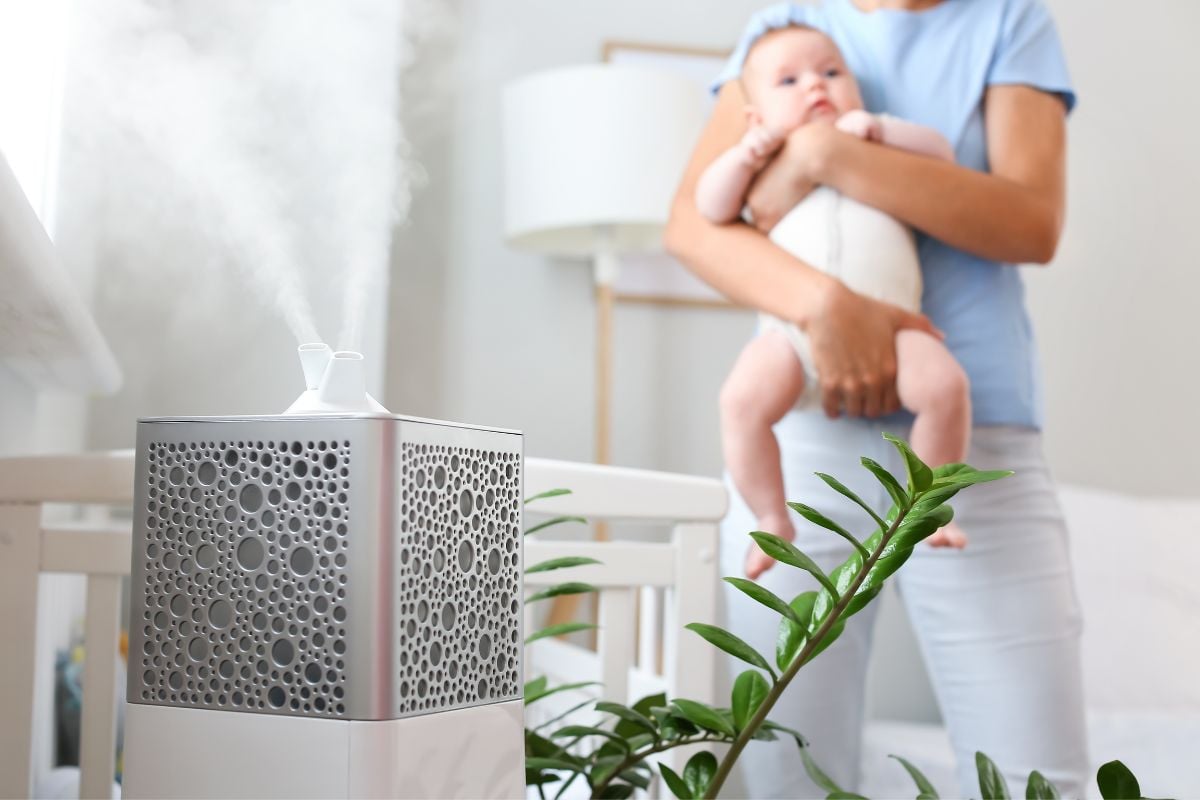
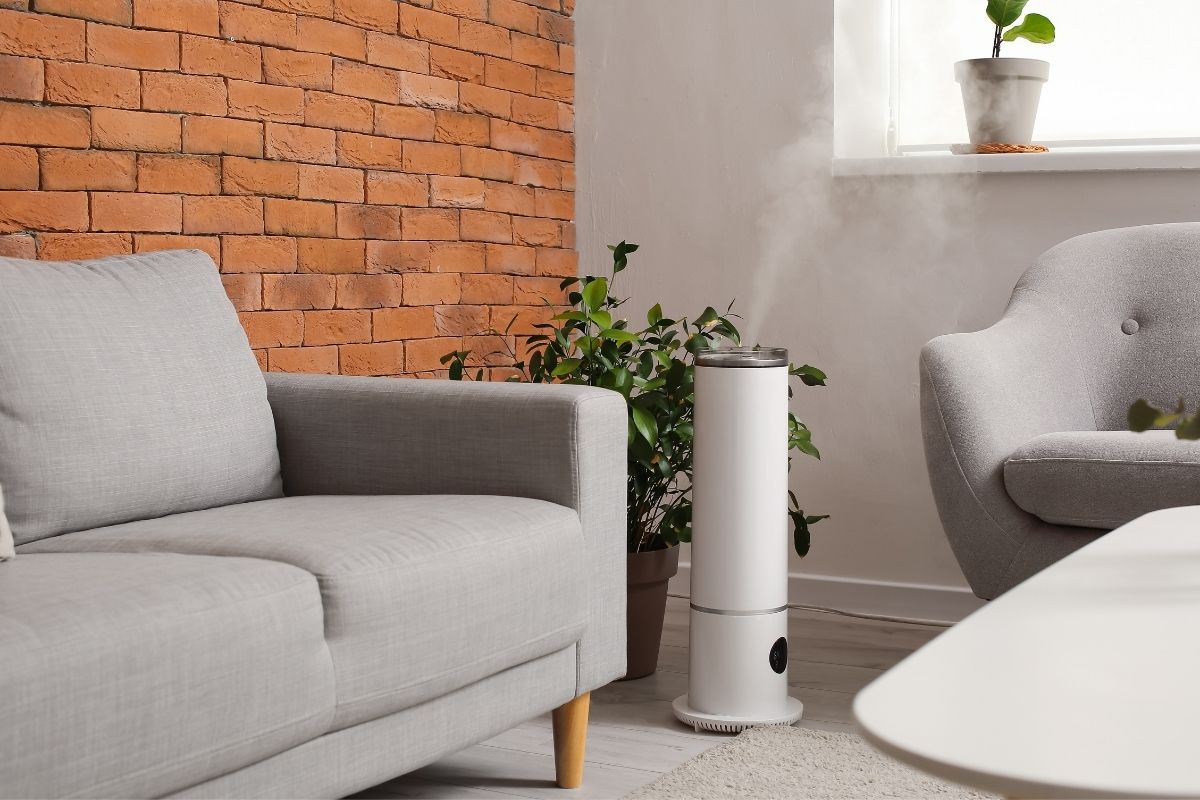
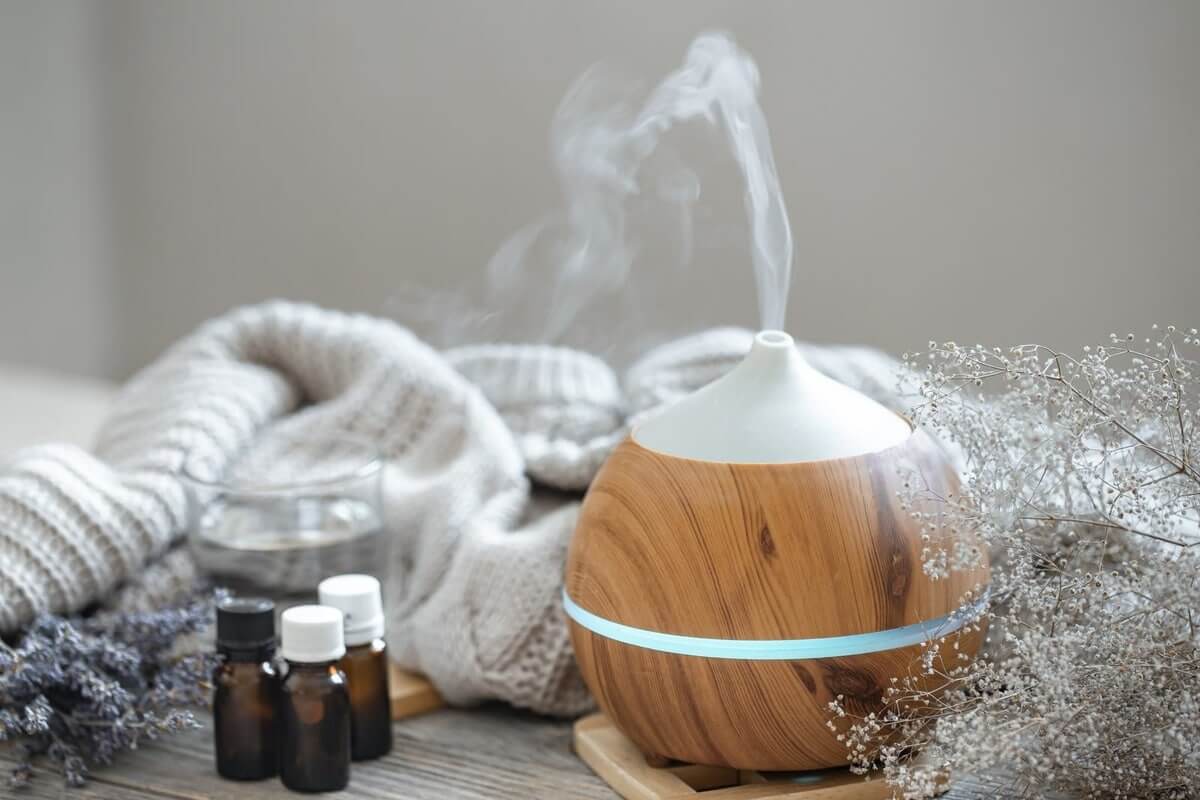
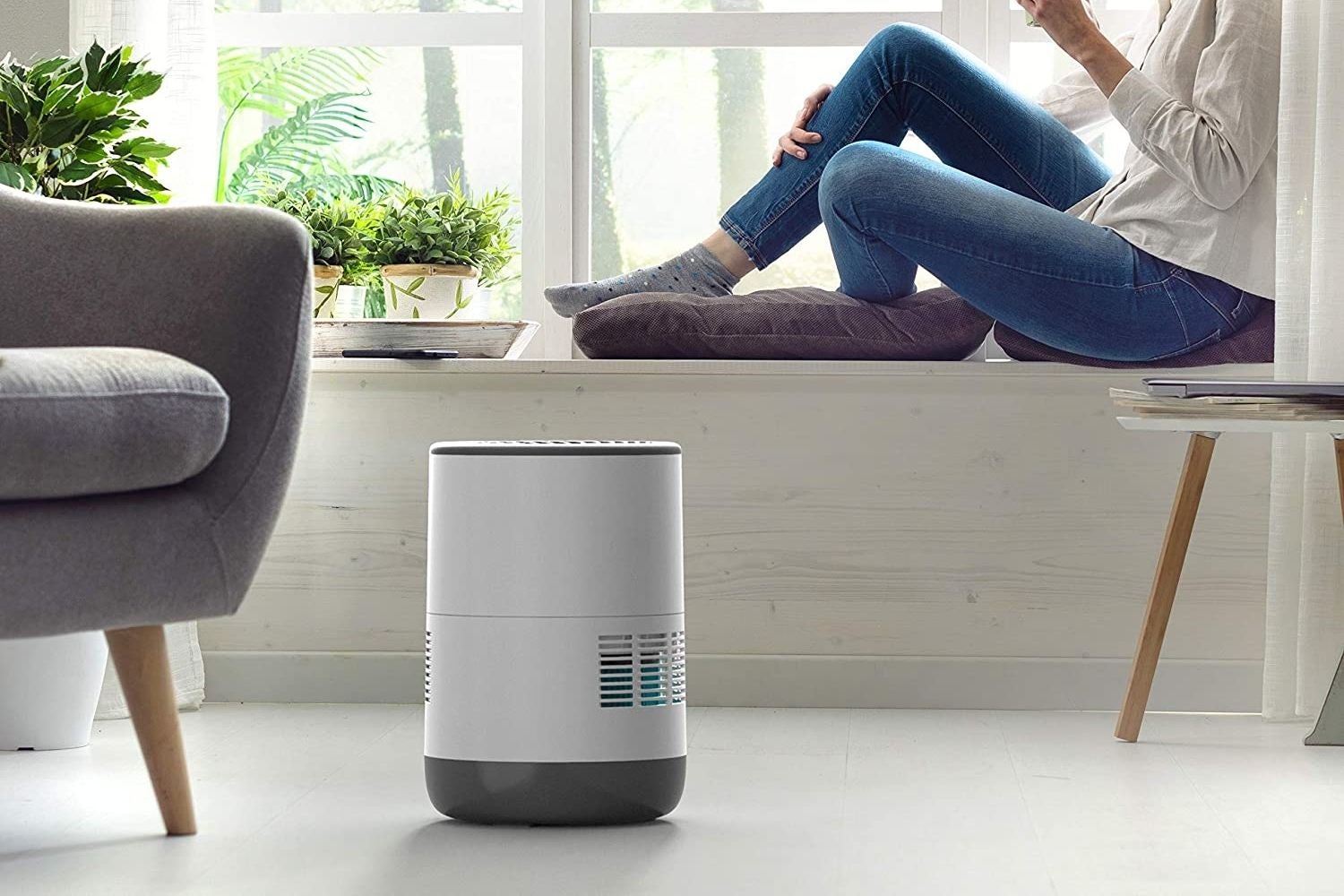
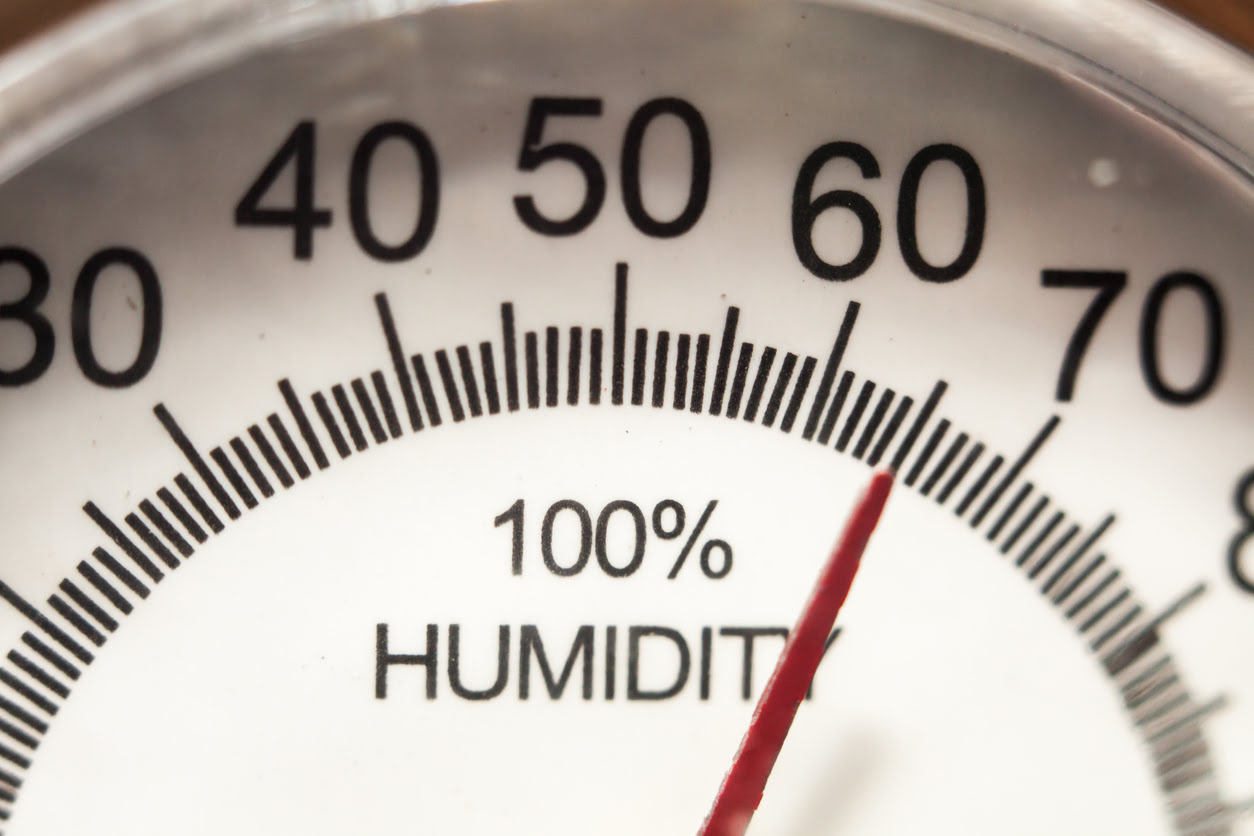
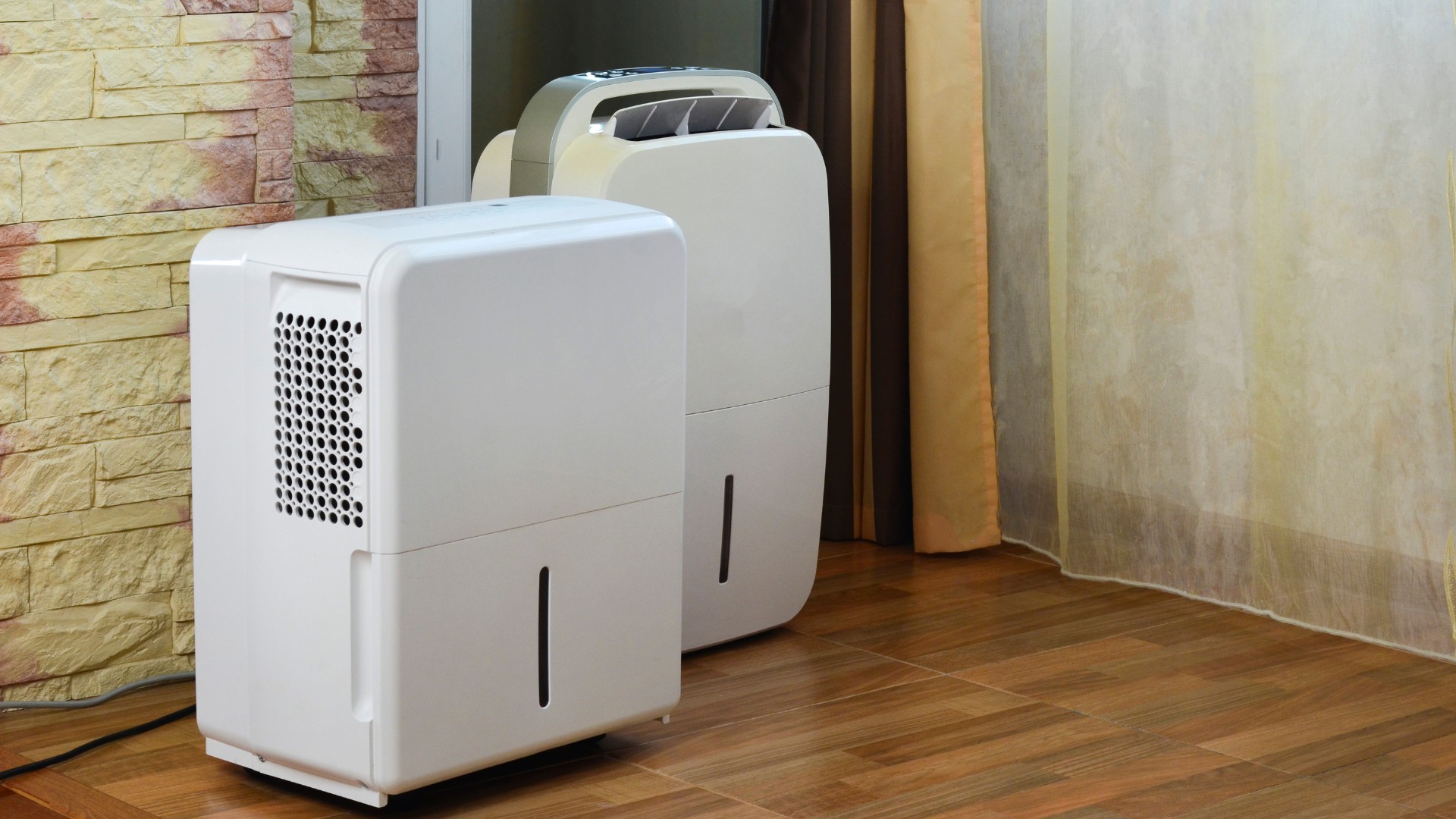
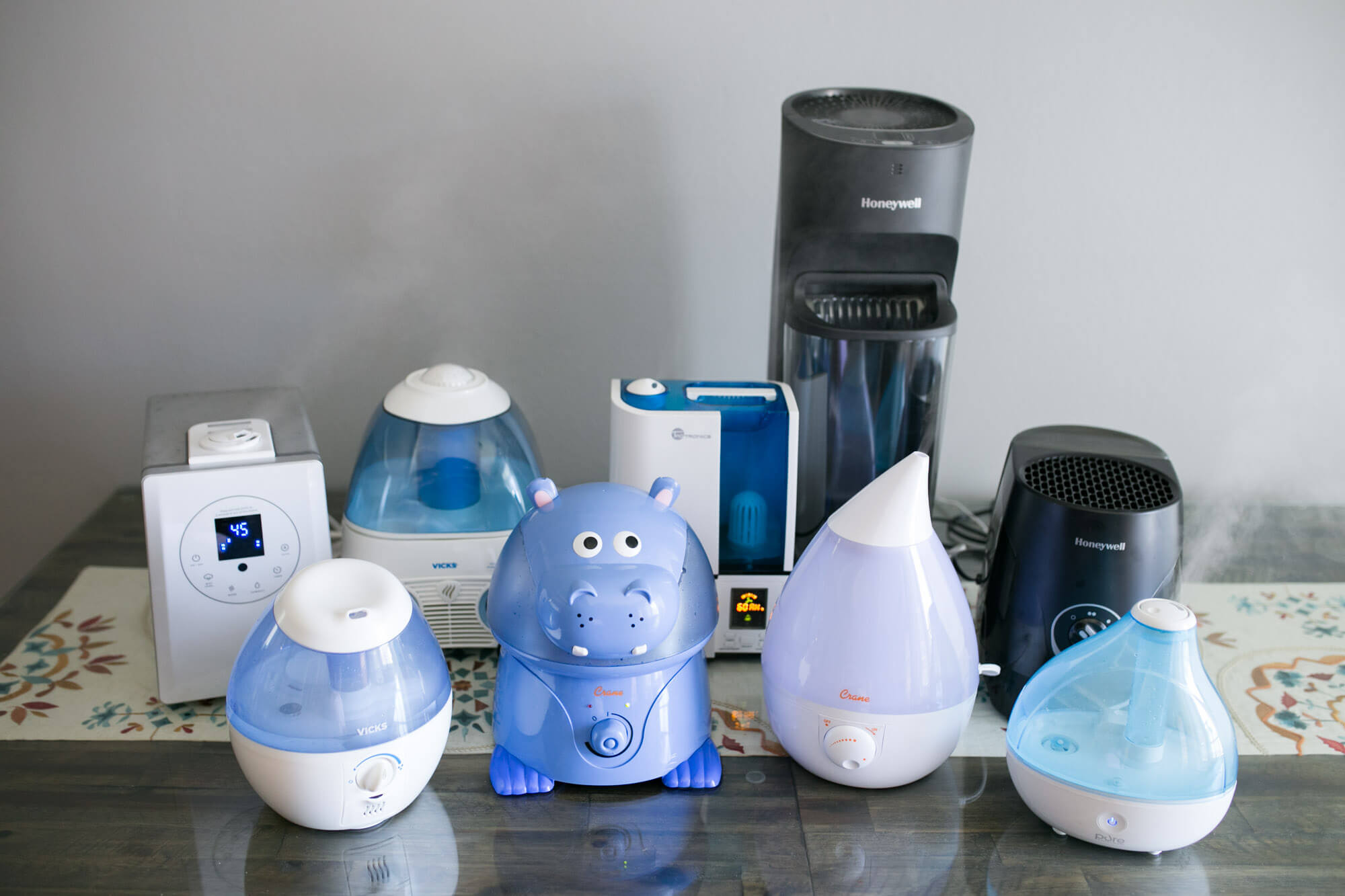
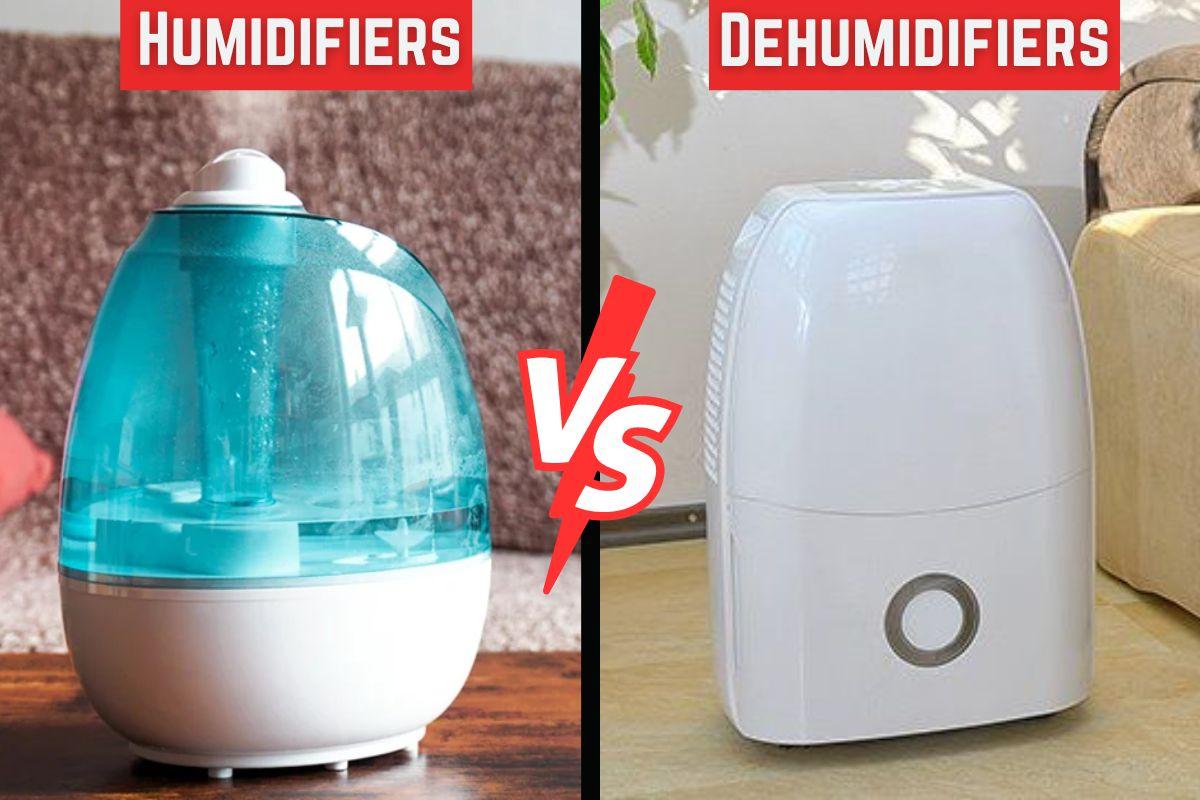
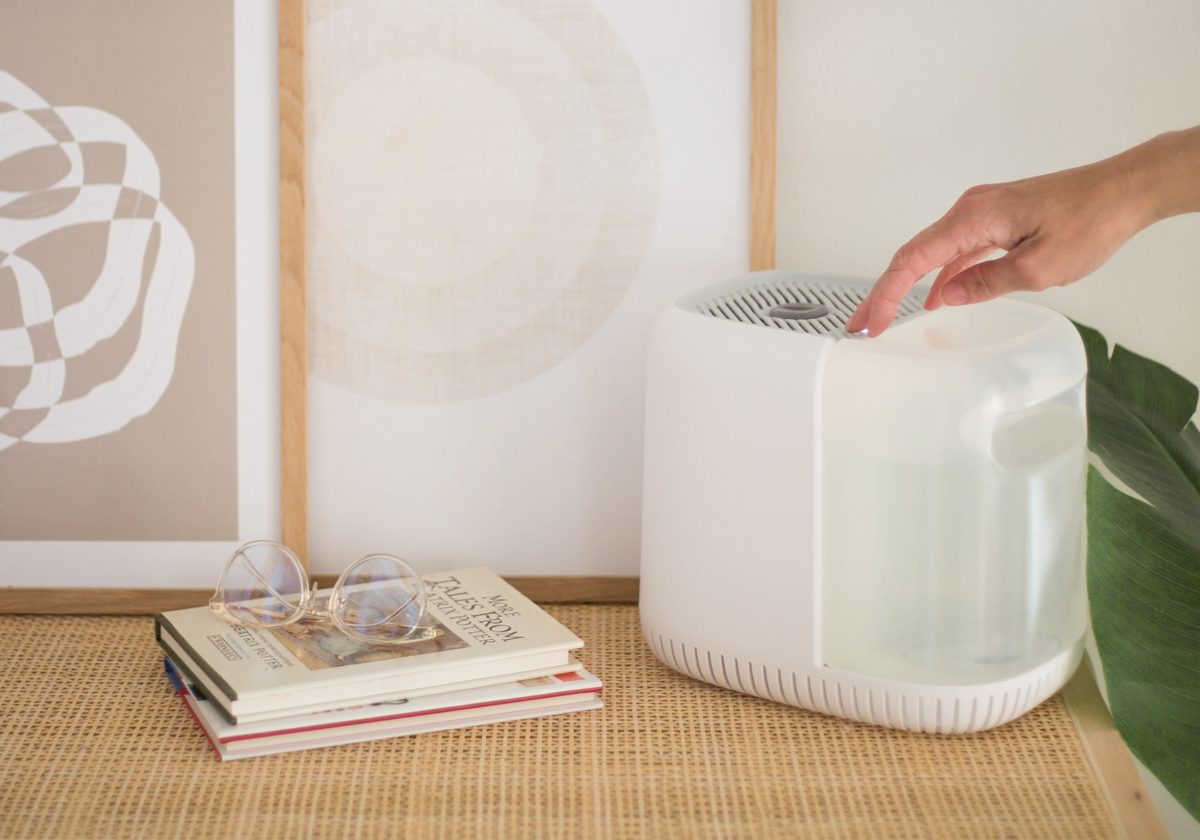
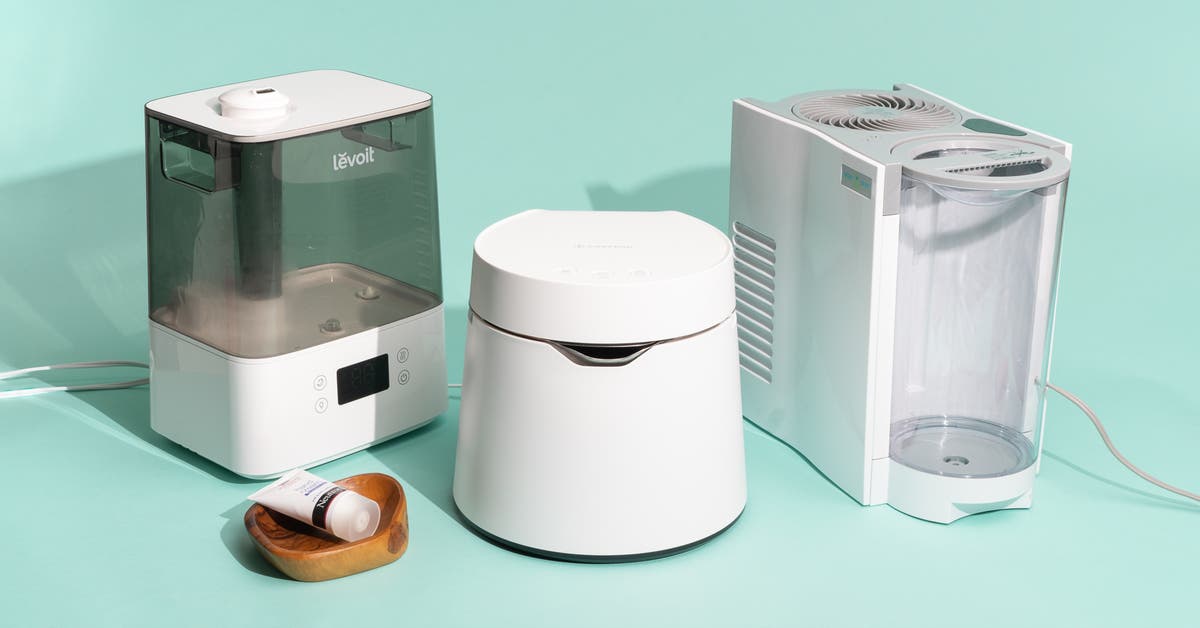
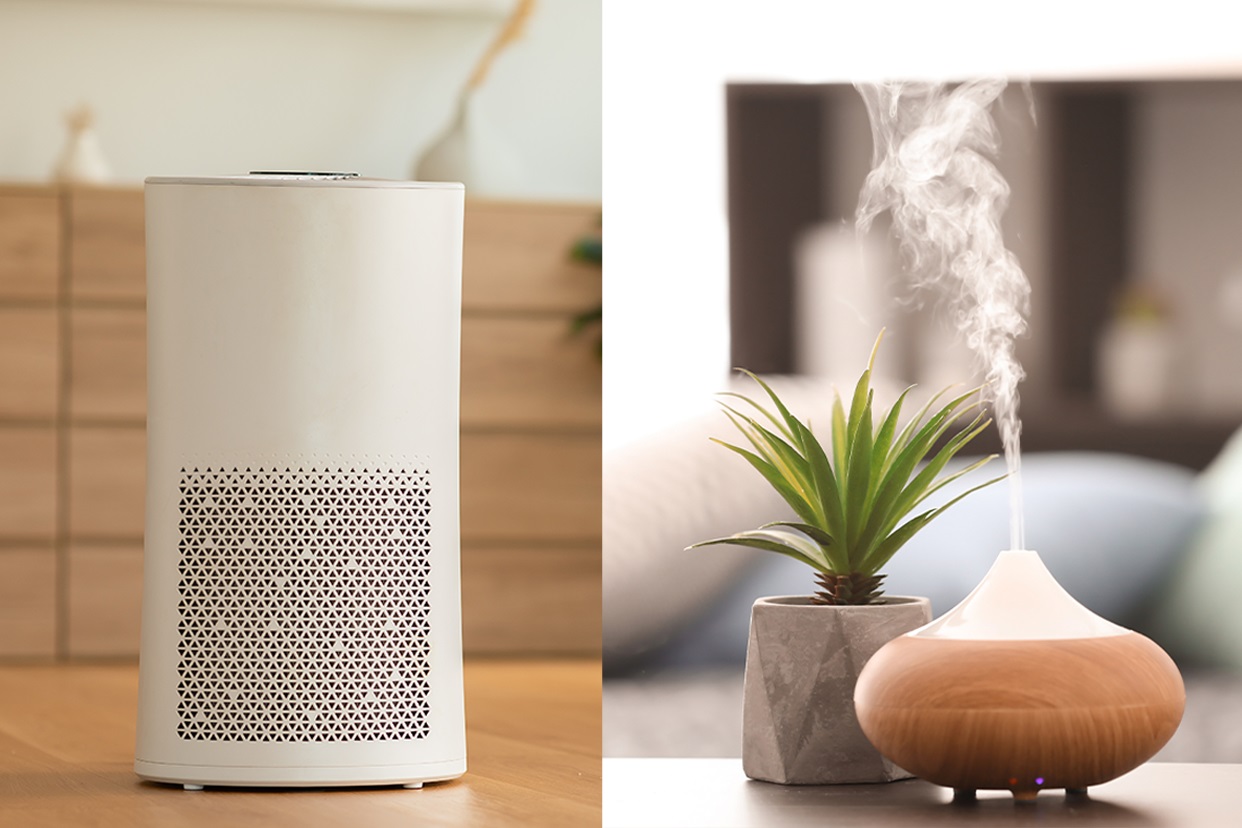
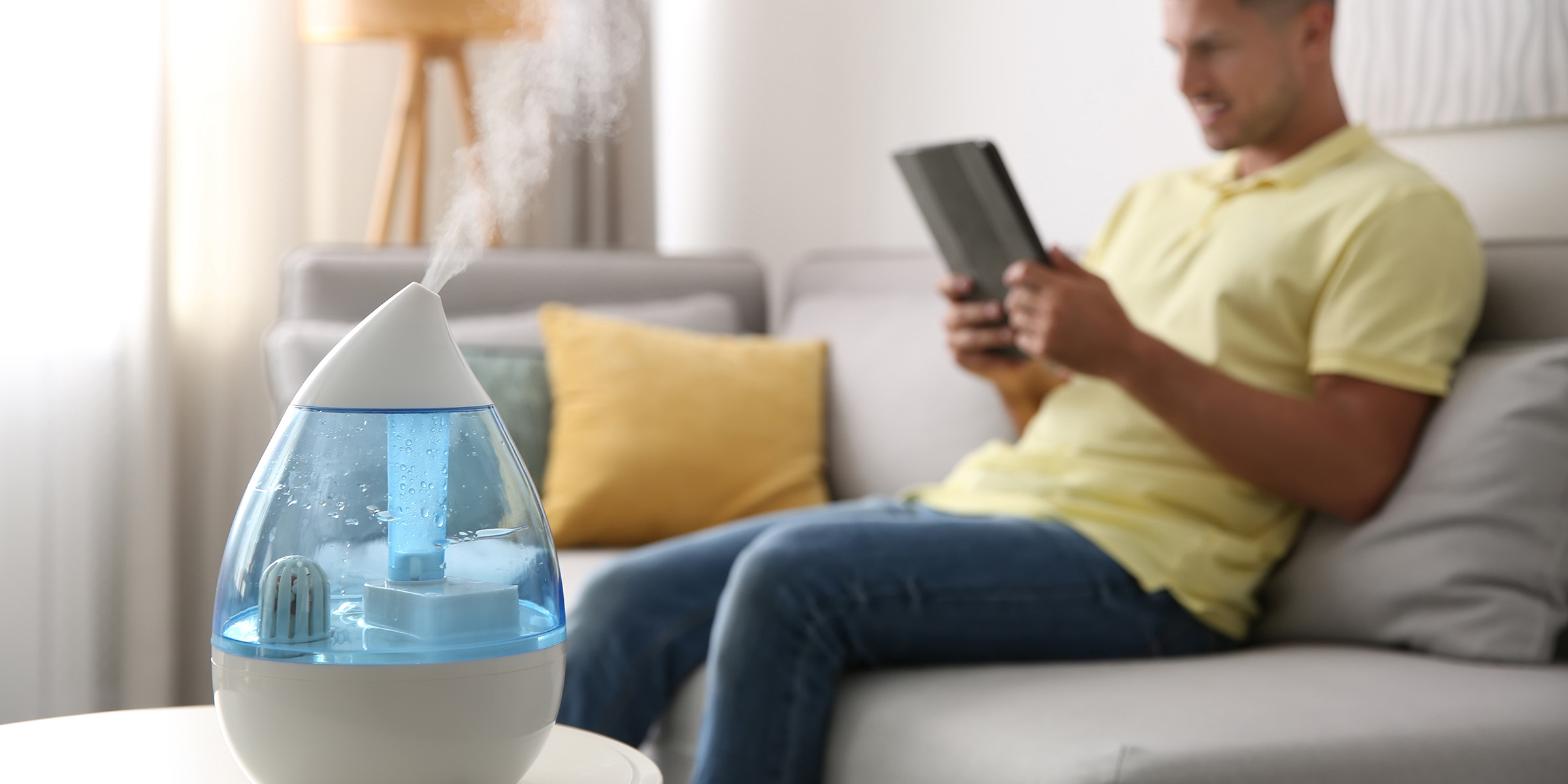

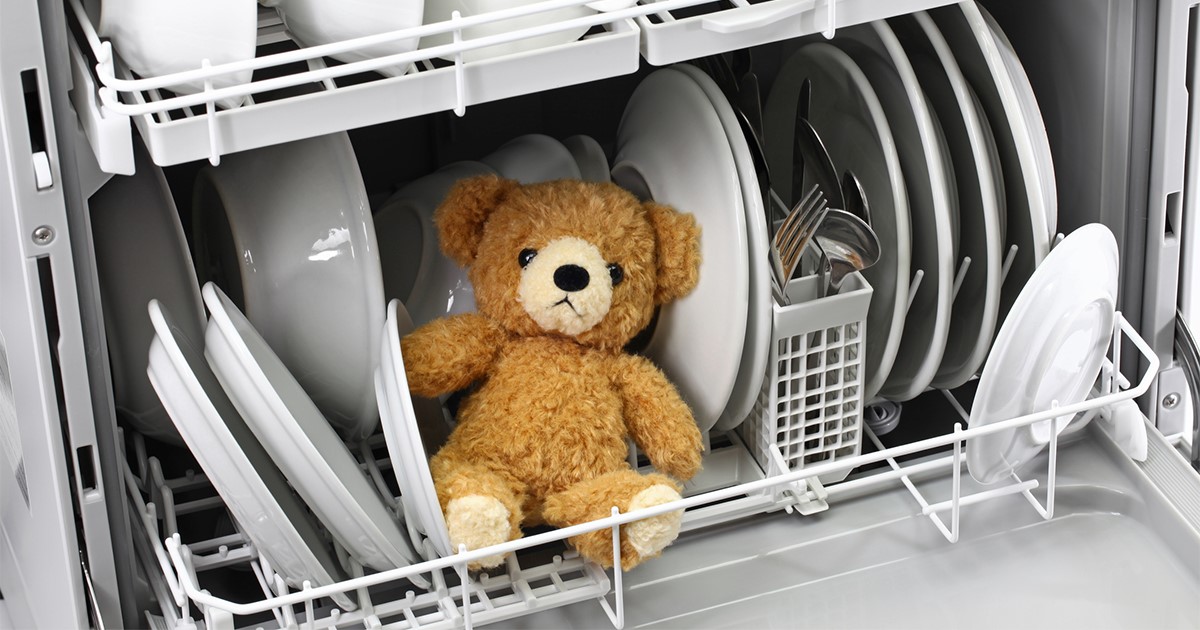

0 thoughts on “What To Put In A Humidifier”